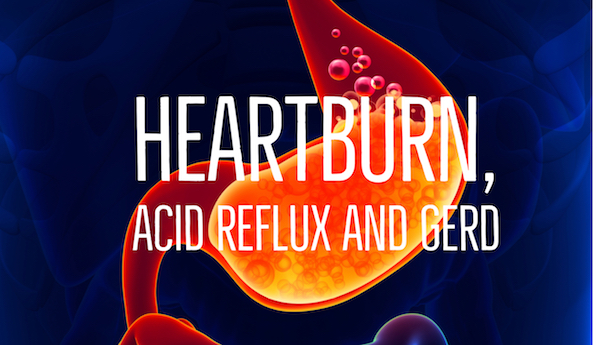
Gastroesophageal reflux disease (GERD) and acid reflux are essentially similar, but different in the fact that...
Acid reflux is more often referred to as a condition that can range from mild to severe and GERD is a chronic long-term disease, which is usually considered severe. GERD and acid reflux occur when acid or other stomach contents back up in the esophagus. Heartburn is the most common symptom of both.
Common symptoms:
- Heartburn—burning pain behind the chest that may move up toward the neck. Or burning pain that is worse when you are lying down or bending over. Heart- burn often happens after you eat.
- Feeling like food is coming back up into your mouth, maybe with a bitter taste
- Sore throat that won’t go away
- Hoarseness (scratchy-sounding voice)
- Cough that won’t go away
- Asthma
- Chest pain
- Feeling like there is a lump in your throat.
- Pain when you swallow
- Feeling as though food sticks in the throat when going down.
- Nausea
- Frequent burping
- Throwing up
Alarming Symptoms:
Certain symptoms may point to complications or life-threatening problems. Should you have any of these alarm-warning symptoms, talk to your doctor right away.
- Chest pain with activity, such as climbing stairs
- Losing weight without trying
- Choking while eating or trouble swallowing food and liquids
- Throwing up blood or material that looks like coffee grounds
- Red or black stools
What causes GERD and acid reflux?
Muscle Weakness of the lower esophageal sphincter (valve), which is found between your stomach and esophagus. This muscle is meant to close after food goes into your stomach and stay closed when you are not eating, but if this muscle is weak, the valve does not work the right way and what is in your stomach can come back up (reflux).
The muscle can become weak because of:
- Being overweight, obese or pregnant
- Some medications (talk to your doctor and tell him or her exactly what you take).
- Smoking
- Alcohol
- Getting older
Other Causes
- Reflux can also be worsened by some foods, how fast you eat and how much you eat.
- A hiatal hernia, which is a bulging of the stomach into the chest through the hole in your diaphragm normally occupied by the lower esophageal sphincter, can cause re ux. This condition is more common with aging and obesity.
If you are having persistent acid reflux or heartburn or think you may have GERD make an appointment to discuss your symptoms with your healthcare professional.
Trigger Foods:
- Tomato
- Garlic
- Onions
- Citrus Fruit
- Spicy Foods
- Coffee
- Alcohol
- Fatty Foods
- Chocolate
